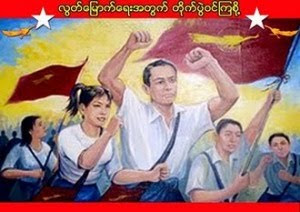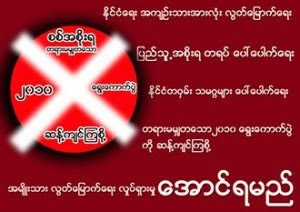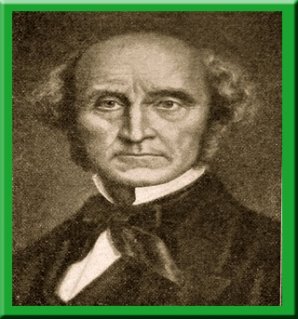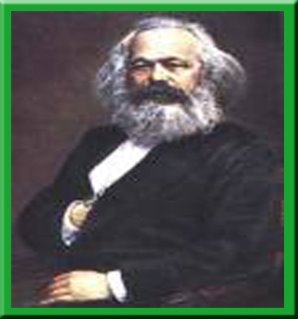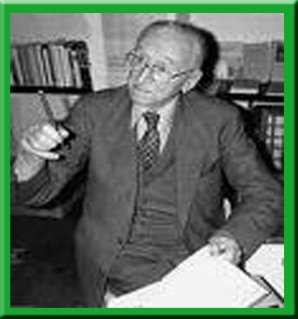Realists and liberal theorists of international politics have debated over the scope for co-operation among states by using different types of models. Among them, the ways in which liberal models of interdependence challenge the realistic analysis of the prospects for international co-operation. In this essay, I would like to mention about the realist arguments of the prospects for international co-operation that would deliver absolute gains for all parties, liberal models of interdependence and the ways in which these models question the conclusions of realist arguments.
According to the structural theorists, international system was viewed as an anarchic structure. In an anarchic structure, ‘self-help is necessarily the principle of action’ (Waltz 1979: 111) Realists also believe that coexistence is achieved through the maintenance of balance of power, and limited co-operation is only possible in interactions where the realist state stands to gain more than other states.
Waltz argued that the metaphor of the lack of trust among states provides a basis for understanding the problem of coordinating the interests of the individual versus the interests of the common good and the payoff between short-term interests and long-term interests and the logic of self-interest mitigates against the provision of collective goods such as security or free trade. (Schmidt, 2005: 176)
Therefore, individual states or groups of states will pursue protectionist policies and international trade can collapse leading to the reduction of the wealth of each state. To prevent this, the solution of the contemporary liberal theorists is through the construction of regimes like WTO. They argued that only regimes can govern the interactions of various state and non-state actors based on agreed rules, norms, principles, and decision-making procedures. (Young, 1997:6) Structural theorists agree with liberals that regimes can facilitate cooperation under certain circumstances although realists believe that in a self-help system cooperation is ‘ harder to achieve, more difficult to maintain, and more dependent on state power’ (Grieco, 1993b: 302) So they claimed that states are more concerned with relative gains rather than absolute gains and the question is not whether all will be better off through cooperation, but rather who is likely to gain more than another.
One of the realist models, namely, Waltz’s model generates some arguments about international co-operation. Two implications can be drawn from this model. The first implicit is that the gains from co-operation arising from specialization and trade can create a form of dependence that threatens the security of the state. The second one relates to the importance of relative powers. As Waltz mentioned, ‘even the prospect of large absolute gains among parties does not explicit their co-operation so long as each fears how the others will use its increased capability ---- a state worried about a division of possible gains that may favor others more than itself. That is the first way in which the structure of international politics limits the co-operation of states ’ (Waltz, 1979: 105) He argued that actors will not willingly co-operate if it results an increase in vulnerability and decrease in relative power to safeguard their own self-preservation.
For states, as interdependence is a condition of mutual sensitivity and mutual vulnerability, it leads to the concerns that interdependence may compromise sovereignty and security. With the growing volume of international trade, changes in one society are readily transmitted to another through their mutual interactions and governments have little impact on these transnational reverberations. As well, changes in the rules and policies of one state affect another. So states seek to maximize their gains through international involvement while minimizing their sensitivity and vulnerability to others. (Kegley & Wittkope, 1997: 205)
In fact, realists like Waltz and many in developing countries believe that the regimes like WTO in international trade represent an exercise of power through which the rich countries and strong states have imposed their interests on the low income economies and weaker states. (Bromley, 2004:116) It leads to the debatable argument that the appearance of co-operation is spurious and only the exercise of power by the stronger states.
According to the liberal theorists, interdependence is a condition where states are affected by decisions taken by others; for example, a decision to raise interest rates in USA automatically exerts upward pressure on interest rates in other states. (Dunne, 2005:200) It can be symmetric, i.e. both sets of factors are affected equally, or it can be asymmetric, where the impact varies between actors. Sanchez claimed that interdependence among actors implies that the gains (and losses) of each depend, not only in its own actions, but also on the actions and reactions of others. (Sanchez, 2004: 266). He categorized interdependence into different forms and these can be modeled in terms of different games as follows:
positive-sum games in which the total gains are positive and both players can gain relative to their initial position
zero-sum games in which the gains of one player are matched by equal losses for the other and
negative-sum games in which the total gains are negative, that is, they are losses
The main key assumption in the liberal models is related to absolute gains in the analysis of international politics. It means that states evaluate their gains (or losses) independently of the gains or losses of the others, and in terms of what they already have, not in terms of how their gains compare with those of the others. It is different from relative gains that are evaluated in relation to those of others such as their share of total income, total military capability or so on.
To find out the ways in which a consideration of interdependence challenge the realist arguments for international co-operation in pursuit of absolute gains, we need to understand the different interactions between states and bargaining games among states. The co-operative bargaining theory, also known as bargaining games, assume that the players can bargain with each other or walk it away and go it alone.
The first strategic action is considered in relation to a positive- sum game. Suppose that Mexico and USA are considering about FTA. If they co-operate in reciprocal measures, the total potential gains from liberalization are $100 billion. As this model of bargaining games involves the players into a binding agreement, the USA agrees to remove Mexican textiles and agricultural exports’ quotas while Mexico agrees to open its banking system to foreigners. If they liberalize their economies unilaterally, the USA will gain $50 billion and Mexico will gain $10 billion. This represents the outcomes of the game if there is no co-operation called the fall-back position.
If both countries undertake some unilateral liberalization, its gains are $10 billion for Mexico and $50 billion for the USA. They will not accept a co-operative outcome less than the fall-back position. The underlying concept is that the more to gain from co-operation, the more weakly the position and vice versa. This is the outcome of the positive- sum game and both parties can have benefits.
However, if the outcomes of liberalization may result no mutual benefits from co-operation. This is a zero-sum game happening in the situation, for example, subsidized US agricultural exporters push Mexican producers out of their domestic markets after trade barriers are reduced. If this case happens, every dollar gained in the USA will be a dollar lost in Mexico.
In the real world, the games playing among the states are more complicated in terms of asymmetrical interdependence and power. According to realists, the international system is anarchic so that the use of force is not an option for USA to get in a position to change another’s threat point. So the only way left without force, authority, persuasion or deception is the coercive power, that is, the ability of one party to impose costs on another. If the expected benefits exceed costs, the USA may impose costs on Mexico by altering the terms of its interdependence either unilaterally (by changing national trade policy) or by acting in coalition with a third party so that Mexico has no option but to bear the costs. (Sanchez, 2004:273) In this case, asymmetrical interdependence occurs and the USA is in a position to take away Mexico’s threat point. Gruber called the power to impose costs of this kind as a go-it-alone power. (Gruber, 2000: 7)
The USA has exercised this power on Mexico in 1988 by signing a free trade agreement with Canada that made a credible threat to exclude others. As a result, the outsiders have to join. For outsiders, inclusion shows a loss over the status quo ante but it can have better outcomes than being excluded. For realists, they believe that the use of force is the mean of exercising coercive power. But asymmetrical interdependence can also provide to exercise this power.
Moreover, Waltz claimed that relative considerations weigh heavily in the calculation of states that states fear that relative positions can be translated into absolute outcomes and one state’s relative position can impose absolute losses on another. In fact, relative capabilities are only means; not ends in themselves. Waltz’ arguments did not apply to the USA and Mexico. The general realist argument of anarchy as a barrier to co-operation is also challenged by the ability of states to create forms of collective governance and to manage interdependence. In fact, the pattern of interdependent preferences is also part of the structure of international politics.
In conclusion, considerations of interdependence challenge the realist analysis of the prospects for international co-operation in pursuit of gains in various ways. Although Waltz claimed that the structure determined outcomes, interdependence serves to shape outcomes as well.
Khin Ma Ma Myo (2008)
References
Bromley, Simon (2004) International Politics: States, anarchy and governance in Bromley, S.; Mackintosh, M.; Brown, W. & Wuyts, M. (eds) A World of Whose Making? Making the International: Economic Interdependence and Political Order, The Open University
Dunne, T. (2005) ‘Liberalism’ in Baylis, J. & Smith, S. (eds.) The Globalization of World Politics, Oxford University Press
Grieco, J. (1993) ‘Anarchy and the limits of cooperation: a realist critique of the newest liberal institutionalism’ in Baldwin, D.A. (ed.) Neorealism and Neoliberalism, New York, Columbia Press
Gruber, L. (2000) Ruling the World: Power Politics and the Rise of Supranational Institutions, Princeton, NJ, Princeton University Press
Kegly, C. & Wittkope, E. (1997) World Politics: Trend and Transformation, 6th edition, NY, St. Martin’s Press
Sanchez, Rafael (2004) “Power among states: Mexico’s membership of NAFTA” in Bromley, S.; Mackintosh, M.; Brown, W. & Wuyts, M. (eds) A World of Whose Making? Making the International: Economic Interdependence and Political Order, The Open University
Schmidt, B, (2005) ‘Realism’ in Baylis, J. & Smith, S. (eds.) The Globalization of World Politics, Oxford University Press
Waltz, K. (1979) Theory of International Politics, New York, Random House
Young, O. (1997) ‘International Regimes: Towards a New Theory of Institutions,’ World Politics, (39) (October):104-22
ဘေလာ့ လိပ္စာသစ္သို႕ ေျပာင္းေရႊ႕ျခင္း
(၂၀၀၇) ခုႏွစ္မွစ၍ ဘေလာ့စာမ်က္ႏွာအား ဖြင့္လွစ္ခဲ့ရာ ဖတ္ရွဳအားေပးၾကေသာ စာဖတ္ပရိသတ္အေပါင္းအား အထူးပင္ ေက်းဇူးတင္ရွိပါသည္။
ယခုအခါတြင္ ဘေလာ့ကို ဖြင့္ရန္ အခ်ိန္ၾကာျမင့္မွဳမ်ား ရွိေနေၾကာင္း၊ စာဖတ္သူအခ်ိဳ႕မွ အေၾကာင္းၾကားလာပါသျဖင့္ www.khinmamamyo.info တြင္ စာမ်က္ႏွာသစ္ကို ဖြင့္လွစ္ထားပါသည္။
စာမ်က္ႏွာသစ္တြင္ အခ်ိဳ႕ေသာ စစ္ေရး၊ ႏိုင္ငံေရး၊ စီးပြားေရး၊ ပညာေရး၊ က်န္းမာေရးဆိုင္ရာ ေဆာင္ပါးမ်ားႏွင့္ ရသစာစုမ်ား (ႏွစ္ရာေက်ာ္ခန္႕)ကိုလည္း က႑မ်ားခြဲ၍ ျပန္လည္ေဖာ္ျပထားပါသည္။
ယခုဘေလာ့စာမ်က္ႏွာကို ဆက္လက္ထားရွိထားမည္ျဖစ္ေသာ္လည္း ယေန႕မွစ၍ ပို႕စ္အသစ္မ်ား ထပ္မံ တင္ေတာ့မည္ မဟုတ္ပါေၾကာင္းႏွင့္ ပို႕စ္အသစ္မ်ားကို စာမ်က္ႏွာသစ္တြင္သာ တင္ေတာ့မည္ျဖစ္ပါေၾကာင္း ေလးစားစြာ အသိေပး အေၾကာင္းၾကားပါသည္။
စာမ်က္ႏွာသစ္သို႕ အလည္လာေရာက္ပါရန္ကိုလဲ လွိဳက္လွဲစြာ ဖိတ္ေခၚအပ္ပါသည္။
ေလးစားစြာျဖင့္
ခင္မမမ်ိဳး (၁၇၊ ၁၀၊ ၂၀၁၁)
www.khinmamamyo.info
ယခုအခါတြင္ ဘေလာ့ကို ဖြင့္ရန္ အခ်ိန္ၾကာျမင့္မွဳမ်ား ရွိေနေၾကာင္း၊ စာဖတ္သူအခ်ိဳ႕မွ အေၾကာင္းၾကားလာပါသျဖင့္ www.khinmamamyo.info တြင္ စာမ်က္ႏွာသစ္ကို ဖြင့္လွစ္ထားပါသည္။
စာမ်က္ႏွာသစ္တြင္ အခ်ိဳ႕ေသာ စစ္ေရး၊ ႏိုင္ငံေရး၊ စီးပြားေရး၊ ပညာေရး၊ က်န္းမာေရးဆိုင္ရာ ေဆာင္ပါးမ်ားႏွင့္ ရသစာစုမ်ား (ႏွစ္ရာေက်ာ္ခန္႕)ကိုလည္း က႑မ်ားခြဲ၍ ျပန္လည္ေဖာ္ျပထားပါသည္။
ယခုဘေလာ့စာမ်က္ႏွာကို ဆက္လက္ထားရွိထားမည္ျဖစ္ေသာ္လည္း ယေန႕မွစ၍ ပို႕စ္အသစ္မ်ား ထပ္မံ တင္ေတာ့မည္ မဟုတ္ပါေၾကာင္းႏွင့္ ပို႕စ္အသစ္မ်ားကို စာမ်က္ႏွာသစ္တြင္သာ တင္ေတာ့မည္ျဖစ္ပါေၾကာင္း ေလးစားစြာ အသိေပး အေၾကာင္းၾကားပါသည္။
စာမ်က္ႏွာသစ္သို႕ အလည္လာေရာက္ပါရန္ကိုလဲ လွိဳက္လွဲစြာ ဖိတ္ေခၚအပ္ပါသည္။
ေလးစားစြာျဖင့္
ခင္မမမ်ိဳး (၁၇၊ ၁၀၊ ၂၀၁၁)
www.khinmamamyo.info
Liberalism Vs Realism : International co-operation in pursuit of absolute gains
Saturday, June 6, 2009
Posted by
Khin Ma Ma Myo
Labels:
အက္ေဆးမ်ား




















